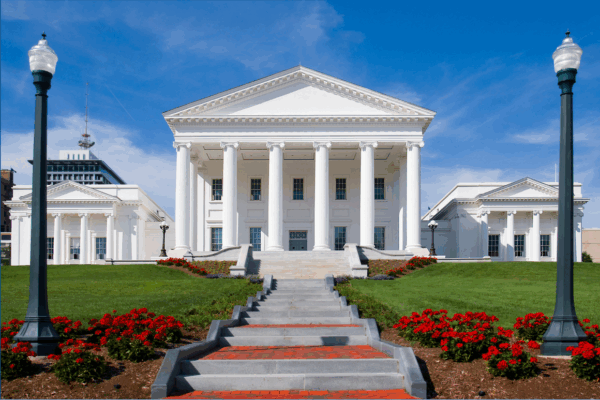Note: The following was originally published in the Roanoke Times on Nov. 27, 2017.
By Ken Cuccinelli and Claire Guthrie Gastañaga
Cuccinelli is the former Attorney General of Virginia and can be reached at ken@cuccinelli.com. Gastañaga is the Executive Director of the ACLU of Virginia and can be reached at acluva@acluva.org.
Virginians who follow politics will not be surprised that there are many issues, such as abortion and marriage, on which the two of us disagree, wholeheartedly and without reservation.
At the same time, however, those same people might be surprised that there are some issues on which we can and do agree, such as economically just electricity rates, privacy, and many aspects of criminal justice reform. These areas of agreement provide the foundation and impetus for civil discourse and collaboration on initiatives we agree would make Virginia a better Commonwealth.
This month’s election in Virginia offers the incoming administration and the almost evenly divided legislature an important opportunity to pass legislation and implement policies that will benefit all Virginians regardless of party. Governor-elect Ralph Northam has said he wants to reach across the aisle when it will reap positive benefits for the residents of Virginia. We hope legislators from both parties will join him in working for positive change. With that in mind, we humbly offer some proposals that we think deserve bi-partisan support.
There is no question that our criminal justice system needs reform. Some things we agree must change include: 1) increasing Virginia’s meager $200 larceny felony threshold; 2) stopping forfeiture of assets before a conviction; and 3) ending trial by ambush where defendants don’t have access to the evidence against them before trial.
New technology has brought with it opportunities for government overreach and surveillance of innocent Virginians. We agree that, absent an emergency, police should have to get a warrant before accessing your real-time or historical cell phone data, your social media accounts, and data collected by internet sites such as Google. Your digital assets deserve the same protection that the Constitution affords your person and your papers. In addition, police should not be able to use drones, license plate readers, or government-owned cameras on public streets to collect data on innocent Virginians “just because” and store it in data bases long term “just in case.”
We agree it makes us all less safe when any victims or witnesses to crime living in Virginia are afraid to call the police for fear that doing so will result in immigration enforcement actions against them and their families. That’s why it would be beneficial to all Virginians to enact a statewide policy that says police won’t ask someone their immigration status if the information isn’t relevant to a crime they are investigating. Such legislation passed the Senate three times unanimously while Mr. Cuccinelli was serving in the Senate and deserves bi-partisan support again in the 2018 session. Those, like Mr. Cuccinelli, who believe states have a role to play in enforcing immigration laws (something on which he and Ms. Gastañaga disagree), can hold those views while still seeking to keep all people in Virginia physically safe. The two positions are not mutually exclusive.
Finally, we agree that the General Assembly should overturn the impact of the Virginia Supreme Court’s surprising decision that the General Assembly has complete power over the electric rate-making authority of the State Corporation Commission (SCC). The legislature can restore retroactively the independence of the SCC in exercising its ratemaking authority while continuing to hold the Commissioners accountable to the public through the appointment and reappointment process every two years. The SCC’s independence is critical to assuring rate payers (consumers and businesses) that their interests will be considered appropriately in ratemaking. With respect to consumers, it is the job of the Attorney General to represent the interests of all rate payers in proceedings before the SCC, and the SCC’s decisions should not be subject to second-guessing in the legislature where the political influence of the regulated utilities can override consumer and economic interests, especially the interests of the most economically vulnerable. Restoring the SCC as the sole authority over electric rates could result in decisions that would return billions of dollars to Virginia consumers over the next decade. We consider this an essential step to restore a modicum of economic justice to electric rate regulation.
We will continue to work against each other on issues on which we don’t and can’t agree and will seek to bring others to those causes. We know others will do the same. At the same time, however, we will continue do so civilly and respectfully so that we can collaborate effectively on initiatives that we agree will help move the Commonwealth toward being a better place for all. We hope that the newly-elected administration and the legislature will do the same.

